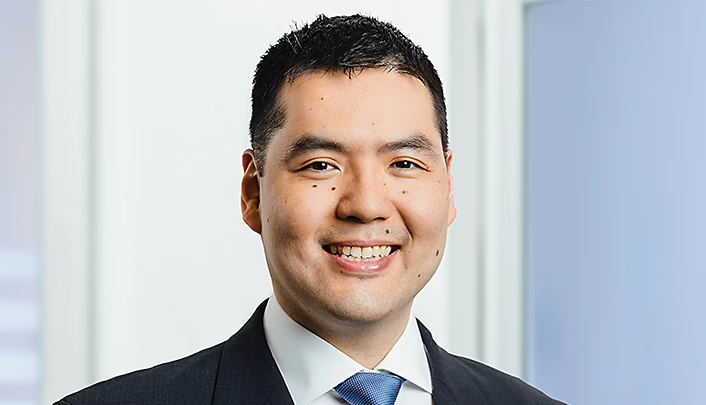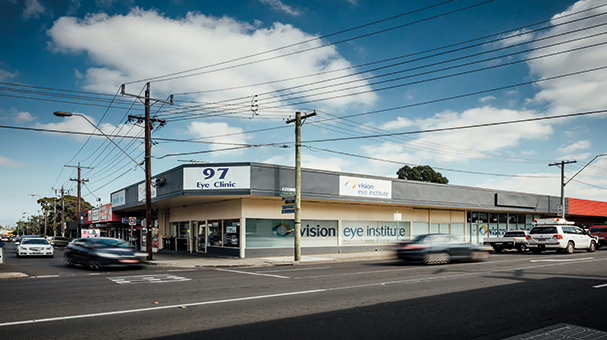Book a consultation
Book a consultation with one of our doctors or at one of our clinics below.
Do NOT use this form in an emergency – contact one of our clinics or your nearest hospital emergency department instead.
Some services may not be performed by your preferred doctor or at your preferred clinic. We will confirm this with you before making an appointment.
Glaucoma procedures at our Melbourne clinics
Minimally invasive glaucoma surgery (MIGS)
Minimally invasive glaucoma surgery (MIGS), also referred to as micro-invasive or micro-bypass surgery, is a specialised category of surgical treatments designed to manage mild-to-moderate cases of primary open-angle glaucoma.
MIGS procedures involve creating a small incision, similar to a keyhole operation, and delicately inserting a tiny medical device into the eye’s drainage canal. This innovative technique enhances the outflow of fluid, which reduces pressure on the optic nerve and prevents further damage. MIGS procedures typically have a favourable safety profile and quick recovery time.
In Australia, the following implants are approved for use:
- iStent inject®: This comprises two tiny titanium stents, each measuring less than 0.4 mm. Using a preloaded injector, the eye surgeon carefully inserts these stents to bypass blockages in the trabecular meshwork (the eye’s internal drainage system). By facilitating the drainage process, these stents help maintain a balanced fluid level in the eye.
- Hydrus®: This is a curved, flexible stent, about the size of an eyelash, that acts as a supportive scaffold. It is carefully placed to bypass the trabecular meshwork and widen the natural drainage canal. As a result, more fluid can flow through the canal and into the collector channels, effectively alleviating pressure in the front of the eye.
- XEN® gel stent: This small shunt measures 6 mm and is made of non-degradable gelatin. Once inserted, it softens and adapts to the shape of the eye. It redirects fluid through the trabecular meshwork into a small blister (known as a bleb), which is located beneath the conjunctiva, just below the upper eyelid.
Your specialist will advise if a MIGS implant suits your individual needs. The price of a MIGS procedure will depend on the recommended implant option. Before surgery is booked, the costs will be confirmed as part of the required informed financial consent.
Minimally invasive bleb surgery (MEBS)
Minimally invasive bleb surgery (or MEBS) involves the use of implants such as XEN or Preserflo MicroShunt to divert fluid into a ‘bleb’ – a small fluid blister underneath the eyelid. This blister enables drainage of fluid, reducing intraocular pressure.
Compared to traditional glaucoma filtration surgery, MEBS procedures offer a less invasive solution with faster recovery times. However, it is important to note that the long-term effectiveness of MEBS implants is currently under evaluation.
Glaucoma filtration surgery
Glaucoma filtration surgery, also known as trabeculectomy, has a longstanding history as a traditional treatment approach for glaucoma. This surgical procedure, which has been used for several decades, involves the creation of a specialised tunnel to bypass the blockage that hinders fluid outflow.
By establishing a new pathway, fluid is able to drain from the eye into a small blister called a ‘bleb’ on the eye’s surface. To ensure the new pathway remains open, an anti-scarring agent called mitomycin C is applied.
Glaucoma filtration surgery has demonstrated good effectiveness in managing the condition, but it does have a longer recovery period. This procedure is usually reserved for patients with moderate-to-advanced stages of glaucoma.
Glaucoma drainage devices
Glaucoma drainage devices, such as Baerveldt, PAUL, or Molteno, are specifically designed to regulate intraocular pressure. These sizeable implants consist of a small tube, which diverts fluid to a plate positioned beneath the upper eyelid.
In general, this operation is reserved for advanced glaucoma cases when trabeculectomy is deemed unsuitable or has not achieved the desired results.
Laser surgery for glaucoma
At our Victorian clinics, we provide laser treatment options for glaucoma, which eliminates the need for admission to a day surgery. The procedure is conducted with the use of anaesthetic eye drops, ensuring minimal-to-no discomfort during the treatment.
Our specialists take into account various factors, including your lifestyle and eye health, to determine if laser treatment is appropriate for your visual needs. The available options may include:
- Selective laser trabeculoplasty (SLT): This method involves directing laser pulses at the drainage outflow channels to stimulate cell activity, resulting in the clearance of debris and improvement of fluid outflow. This lowers the intraocular pressure. SLT is a very safe procedure; however, its effects may reduce after a few years.
- YAG laser peripheral iridotomy: This approach is used for angle-closure glaucoma. It involves creating a small channel in the iris (the coloured part of the eye). This channel helps open up the drainage angle and prevents the progression of the disease.
The price of laser surgery treatment for glaucoma may vary depending on the specific laser option. Your glaucoma specialist will provide you with advice on the laser treatment option that best suits your visual requirements.
How does the healthcare system in Melbourne support glaucoma patients?
Melbourne’s public healthcare system offers free glaucoma appointments and treatments. There can be considerable wait times to access these services. Most patients wait approximately 134 days in Victoria before receiving their surgery.1
Melbourne’s private healthcare system provides glaucoma appointments and treatments with little to no wait time. Medicare subsidises most of the cost, and private health insurance may cover the remaining amount. Coverage depends on your health fund and level of insurance. We recommend contacting a private health fund directly for more information.
Melbourne’s private healthcare system also provides additional premium services. These include access to the latest technology and procedures, your choice of glaucoma specialist and greater flexibility in appointment and surgery dates to suit your schedule. To learn more about the services available at our Vision Eye Hospital Melbourne clinics, click here.
References:
1. Australian Institute of Health and Welfare (AIHW). Eye Health. AIHW;2021. Available at <https://www.aihw.gov.au/reports/eye-health/eye-health/contents/treatment-and-management> [Accessed online 9 November 2023].
What are the common treatments available for glaucoma in Melbourne?
Across Melbourne, a broad range of glaucoma treatments are available to treat the various stages and types of glaucoma. Our Melbourne glaucoma specialists provide an array of these treatments to suit each patient and their vision goals – these include:
- Eye drops
- Oral medications
- Laser surgeries such as selective laser trabeculoplasty (SLT) and YAG laser peripheral iridotomy
- Minimally invasive glaucoma surgery (MIGS)
- Minimally invasive bleb surgery (MEBS)
- Traditional glaucoma surgeries such as trabeculectomy and glaucoma drainage devices.
Learn more about the treatments available at our Vision Eye Institute Melbourne clinics.
Are there any cutting-edge or new glaucoma treatments available in Melbourne?
One of the latest advancements in glaucoma treatment is minimally invasive glaucoma surgery (MIGS). MIGS is a precise micro-surgery involving the insertion of a tiny stent into the drainage network in the eye (the trabecular meshwork) – this supports fluid drainage within the eye and can slow or halt glaucoma progression.
Our Melbourne clinics offer Hydrus®, XEN® and iStent inject® MIGS technologies. iStent inject® is a recently developed MIGS technology and has only been available in Australia since 2014. iStent inject® consists of 2 titanium stents less than 0.4 mm in diameter. To learn more about iStent inject®, click here.
Is laser treatment for glaucoma available in Melbourne, and how effective is it?
Laser treatment for glaucoma is a standard glaucoma treatment available across Melbourne. At Vision Eye Institute, laser treatment for glaucoma is available at our Blackburn South, Boronia, Camberwell, Coburg and Footscray clinics. We offer selective laser trabeculoplasty (SLT) and YAG laser peripheral iridotomy laser surgeries.
The effectiveness of laser surgery depends on the laser surgery you receive and the type and severity of glaucoma you have. On average, 74–85% of patients will experience a 25% reduction in eye pressure with SLT.2 These results can wear off over the years, in which case you may require additional treatment. We recommend you book an appointment with one of our glaucoma specialists for advice on whether laser surgery is best for you.
References:
2. Glaucoma Australia. Selective Laser Trabeculoplasty (SLT). Artarmon: Glaucoma Australia;2023:1-3. Available at <https://glaucoma.org.au/path-file/133>
What is the cost of glaucoma surgery in Melbourne, and is it covered by Medicare or private insurance?
Melbourne’s public healthcare system offers free glaucoma surgery that is covered by Medicare. However, there can be lengthy wait times to receive your surgery, and you may not have access to state-of-the-art technology or the latest procedures.1
Melbourne’s private healthcare system offers glaucoma surgery that is partially subsidised by Medicare. The remaining cost can be self-financed or may be paid by a private health insurer. Private glaucoma surgery provides greater access to premium technologies and services, surgery date flexibility and your choice of glaucoma specialist. There are usually no wait times for private glaucoma surgery, but there may be a wait time for claim approval by your private health fund.
As the largest provider of private ophthalmic services in Australia, Vision Eye Institute offers a broad variety of glaucoma surgeries to meet your specific vision goals. The final price of glaucoma surgery is highly dependent on the surgery you receive. Book online or call one of our Melbourne clinics to book an assessment and receive a quote.
References:
1. Australian Institute of Health and Welfare (AIHW). Eye Health. AIHW;2021. Available at <https://www.aihw.gov.au/reports/eye-health/eye-health/contents/treatment-and-management> [Accessed online 9 November 2023].
What kind of post-operative care can I expect after glaucoma surgery in Melbourne?
The post-operative care you receive is dependent on the type of glaucoma surgery you have. Some surgeries, such as laser glaucoma surgeries, do not penetrate the eye and have a relatively quick recovery. By contrast, traditional glaucoma surgeries that require incisions into the eye have longer post-operative recovery periods.
In the days and weeks after any glaucoma surgery, your surgeon will schedule post-operative appointments to monitor the recovery of your eyes. Your surgeon may also prescribe medicated eye drops after your surgery to reduce eye swelling and inflammation.
Book an appointment at a Vision Eye Institute Melbourne clinic.
Do I need a referral from a GP to see a glaucoma specialist in Melbourne?
You need a referral from a GP or optometrist anywhere in Australia to see a Melbourne glaucoma specialist. This referral also ensures you receive the Medicare rebate for all appointments and treatments. To make an appointment, book online or call one of our Melbourne clinics.
How accessible are glaucoma treatments for residents in the outer suburbs of Melbourne?
To improve accessibility, we offer glaucoma specialist services across 5 of our Melbourne clinics in Blackburn South, Boronia, Camberwell, Coburg and Footscray and our 4 day surgeries at Camberwell Day Surgery, Whitehorse Day Surgery, Footscray Day Surgery and Panch Day Surgery. All our Melbourne clinics and day surgeries are easily accessible by public transport and main roads. We also provide parking on-site or nearby, and disability access.
Our team can organise appointments and surgeries around your schedule, provide accommodation recommendations in the area, and for our rural and remote patients, facilitate pre- and post-operative appointments with your local optometrist in consultation with one of our ophthalmologists. Call a Vision Eye Institute Melbourne clinic today to discuss your options.
How do optometrists and ophthalmologists in Melbourne collaborate in the management of glaucoma?
Glaucoma care is highly collaborative between optometrists and ophthalmologists. At Vision Eye Institute, we have both optometrists and ophthalmologists working in our clinics. Our optometrists provide glaucoma screening, general care and referral to an ophthalmologist. Our glaucoma specialist ophthalmologists provide further assessment and treatment, including surgical and laser treatments. Learn more about our Melbourne glaucoma specialist ophthalmologists.
Is it safe to undergo cataract surgery if I have glaucoma, and are there specialists in Melbourne who handle both conditions?
It is safe to receive cataract surgery if you have glaucoma, and there are specialists in Melbourne who can manage both your glaucoma and cataracts. All our Vision Eye Institute glaucoma specialists in Melbourne have expertise in managing and treating cataracts. We also offer surgeries that combine glaucoma and cataract treatment in one to minimise the number of surgeries you undergo. Book online or call a Melbourne Vision Eye Institute clinic for an initial glaucoma assessment.
Our glaucoma doctors in Melbourne, VIC
The Vision Eye Institute doctor team in Victoria, Australia includes highly experienced glaucoma specialists, who have access to the latest diagnostic tests and offer the full range of treatment options. Following a comprehensive assessment in the clinic, patients have an in-depth discussion with their surgeon about the management plan recommended for their situation. This includes an explanation of their individual test results and visual prognosis and available treatment options (including price and lifestyle considerations).
-

Dr Uday Bhatt
MBBS DTMH DO MSc(EBP) FRCSEd FRCOphth FWCRS FRANZCO
Locations
- Camberwell
- Coburg
- Footscray
Book a consultationwith Dr Uday Bhatt
Dr Jeremy Diamond
MB ChB, PhD, FRCS, FRCOphth, FRANZCO
Locations
- Boronia
Book a consultationwith Dr Jeremy Diamond
Dr Philip Hoffman
MBBS(First-class Hons) FRANZCO M Health Ethics Member of ANZSRS
Locations
- Camberwell
- Footscray
Book a consultationwith Dr Philip Hoffman
Dr Raj P Pathmaraj
MBBS DO MRCOphth MMed FRCSOphth FRANZCO
Locations
- Blackburn South
Book a consultationwith Dr Raj P PathmarajOur glaucoma clinics in Melbourne, VIC
Our glaucoma surgeons consult at multiple clinic locations across Victoria, with in-patient surgical procedures performed at a co-located or nearby Vision Hospital Group day surgery.
-
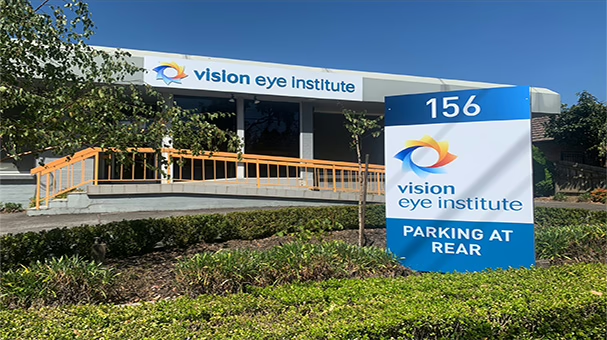
Blackburn South
- 03 9877 6288
- Email us
-
156 Canterbury Rd
Blackburn South 3130 vic -
M–F 8.30 am–5 pm
Sat Closed
Sun Closed
-
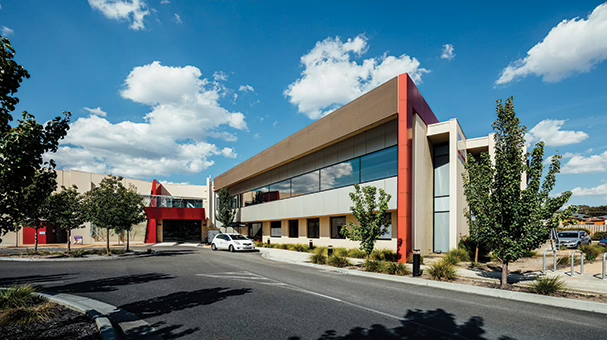
Boronia
- 03 9890 4333
- Email us
-
Ground floor, Suite 5,
157 Scoresby Rd
Boronia 3155 vic -
M–F 8.30 am–4 pm
Sat Closed
Sun Closed
-
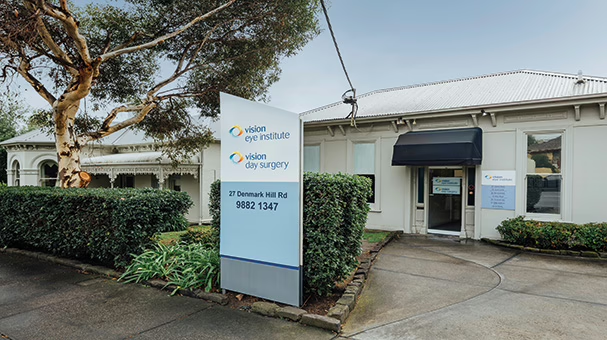
Camberwell
- 03 9882 1347
- Email us
-
27 Denmark Hill Rd
Hawthorn East 3123 vic -
M–F 8.30 am–5 pm
Sat Closed
Sun Closed
-
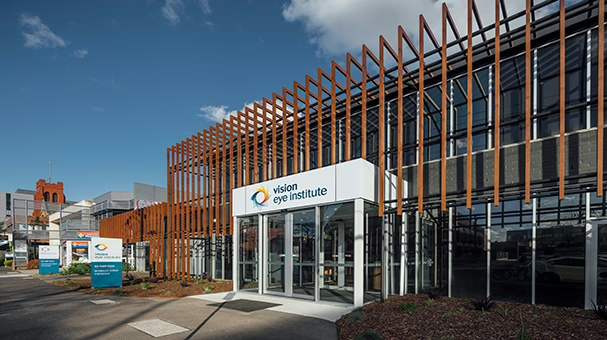
Footscray
- 03 9689 9233
- Email us
-
89 Paisley St
Footscray 3011 vic -
M–F 7.30 am–5 pm
Sat Closed
Sun Closed


